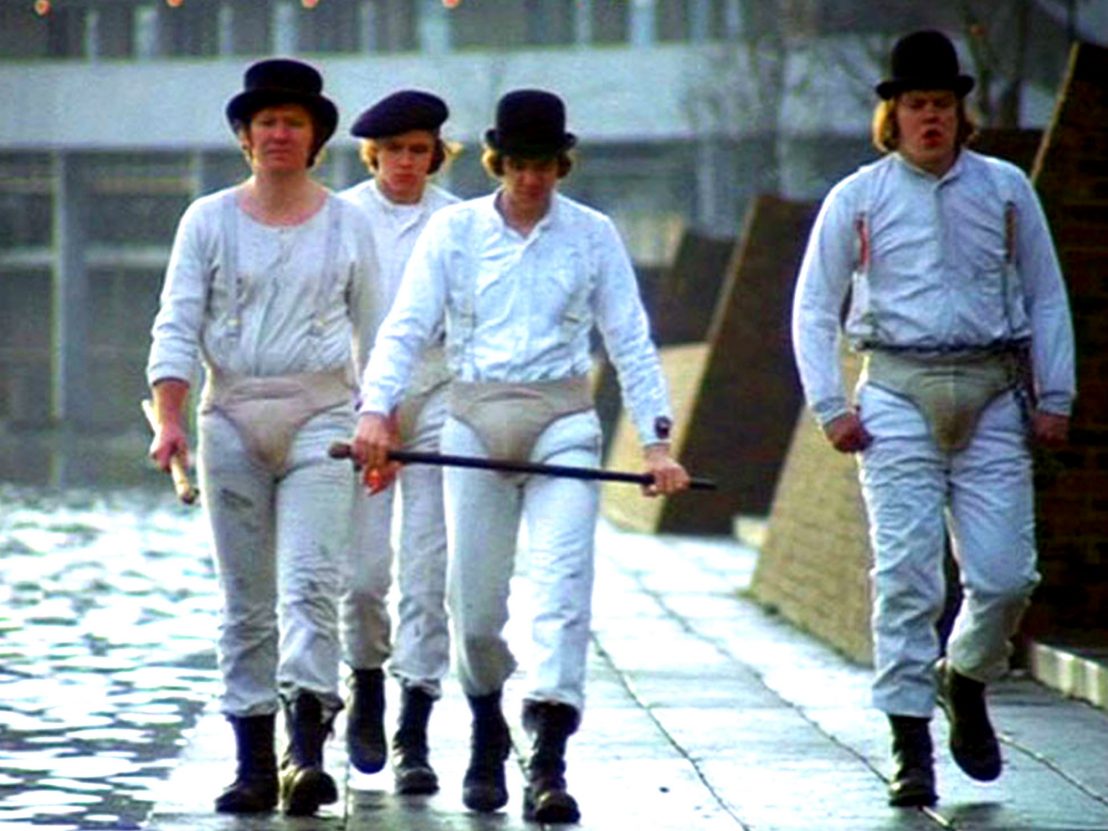Film lexicographer David Thomson sees this is the clearest evidence of Kubrick's "art director's cinema", where narrative is sacrificed on the altar of set design. I think 2001 is far worse in that respect. That film was state of the art and knew it – lovingly lingering over its innovations and making large sections ponderous and boring to this viewer. 2001's narrative is also less satisfying, being simply a series of repeating grandiose developments that obliquely mirror each other, and are too open to interpretation to really mean very much in the final analysis. The structure of A Clockwork Orange has a more satisfying circularity: the protagonist's actions in the first half of the film coming back to bite him in the second.
Anthony Burgess's Catholicism-inflected worries about the suppression of free will by new-fangled techniques of psychological manipulation come through in Kubrick's adaptation, but aren't as interesting now given that the mass use of aversion therapy for political control has not come to pass. In any case, the film isn't particularly interested in the causes of Alex's sociopathy and addiction to "ultraviolence" – something he shares with the majority of the young (male) characters in the film and seems therefore to be at least partly down to wider currents in the culture. It may reflect contemporary concerns that the lifting of social constraints on personal behaviour in the 60s would unleash the very worst in teenagers and lead to the collapse of all moral authority. Certainly Kubrick believed it – pulling his own film from being distributed in the UK after what looked like a copycat murder.
It's hard to conjure that sense of moral panic now, given today's teenagers appear to be more clean-living than their parents used to be at the same age. What's harder to grasp is the film's critique of both reactionary politicians' attempts to clamp down on lawlessness, and the liberal resistance movement who wish to utilise these new techniques of reforming criminals to institute a kind of inward tyranny, where the freedom to choose is eliminated and people are conditioned to be docile and non-violent. Alex is caught up within the conspiracies of these two tendencies, and the final image of the film is one of dark triumph, showing that neither the police nor the psychologists can dampen the antisocial passions raging in the heart of man.

No comments:
Post a Comment